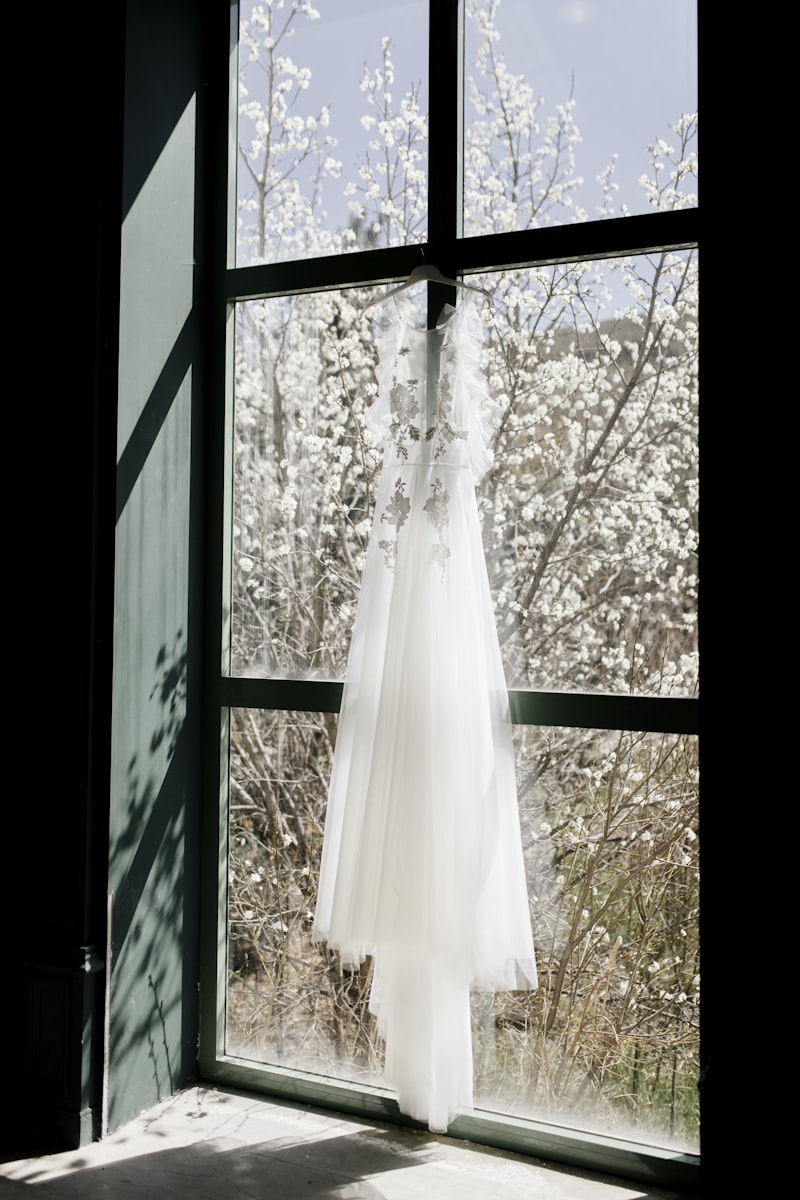Exploring Biodegradable Fabric Choices for Gowns: Sustainable Elegance for the Modern Bride
Exploring Biodegradable Fabric Choices for Gowns: Sustainable Elegance for the Modern Bride
As environmental consciousness continues to shape the fashion industry, biodegradable fabric choices for gowns have emerged as a compelling topic for brides seeking sustainable options. This article delves into the different types of biodegradable fabrics available for gown-making, their benefits, and everything you need to know to make an informed choice for your wedding dress. From organic cotton to hemp and Tencel, let's explore these eco-friendly alternatives that are not only gentle on the planet but also stylish and elegant.
Why Choose Biodegradable Fabrics for Gowns?
As consumers become more aware of the environmental impact of their purchases, the demand for sustainable fashion is on the rise. Traditional fabrics like polyester and nylon can take hundreds of years to decompose, contributing to landfill waste and pollution. In contrast, biodegradable fabrics are made from natural fibers that break down more readily in the environment, offering a sustainable alternative for eco-conscious brides. Here are a few key reasons to consider biodegradable fabric choices:
- Environmentally Friendly: Biodegradable fabrics reduce the impact of textile waste and contribute to a more sustainable fashion industry.
- Comfort: Many natural fabrics are breathable and comfortable against the skin, making them ideal for special occasions.
- Unique Aesthetics: Natural fibers can provide a unique texture and appearance that synthetic fabrics cannot replicate.
Types of Biodegradable Fabrics for Gowns
This section highlights some of the most popular biodegradable fabrics for gowns, each with its unique characteristics:
| Fabric | Properties | Best For |
| Organic Cotton | Soft, breathable, hypoallergenic | Casual and formal gowns |
| Hemp | Strong, durable, naturally anti-bacterial | Rustic and bohemian styles |
| Tencel (Lyocell) | Luxuriously soft, moisture-wicking, biodegradable | Elegant and flowy gowns |
| Silk | Luxurious, lightweight, natural sheen | Classic and high-end designs |
| Bamboo Fabric | Soft, breathable, UV resistant | Casual and eco-friendly styles |
1. Organic Cotton: The Classic Choice
Organic cotton is cultivated without harmful pesticides or synthetic fertilizers, making it a safe and eco-friendly option for wedding gowns. It is soft, breathable, and hypoallergenic—perfect for brides sensitive to certain materials. Many designers are now offering organic cotton gowns that come in various styles, ensuring that you can find the gown of your dreams without compromising on sustainability.

2. Hemp: Nature's Power Fabric
Hemp is known for its robustness and durability, making it an excellent choice for rustic or bohemian-themed weddings. This fabric is naturally anti-bacterial and can withstand wear and tear, ensuring your dress maintains its beauty throughout the day and beyond. While hemp gowns may have a slightly different texture, many find this natural effect adds to their charm.
3. Tencel: The Sustainable Luxury
Tencel, also known as Lyocell, is a biodegradable fabric made from sustainably sourced wood pulp, primarily from eucalyptus trees. It is not only luxurious and silky but also known for its moisture-wicking properties, making it a fantastic option for wedding gowns, especially for summer weddings. Many modern bridal designers are incorporating Tencel into their collections, offering brides a touch of eco-luxury.
4. Silk: Natural Elegance
Silk has long been a favorite for bridal gowns due to its exquisite texture and natural sheen. While some silk production methods can be harmful to the environment, many sustainable designers now offer organic or peace silk alternatives. This fabric can elevate any gown, adding a touch of elegance and sophistication that every bride desires.
5. Bamboo Fabric: The Eco-Friendly Alternative
Bamboo fabric, derived from the pulp of the bamboo plant, is another sustainable option. It is incredibly soft, breathable, and has natural UV resistance, making it suitable for outdoor weddings. Bamboo is a fast-growing renewable resource, contributing to its appeal as an eco-friendly fabric choice for gowns.
How to Care for Biodegradable Fabrics
To ensure the longevity of your biodegradable wedding gown, it's crucial to follow proper care guidelines:
- Washing: Always check the label and follow the manufacturer's recommendations. Hand washing with mild detergent is often the safest choice.
- Drying: Avoid tumble drying; instead, air-dry your gown to prevent shrinkage and fabric damage.
- Storage: Store your gown in a breathable, cotton garment bag to protect it from dust and light.
Conclusion: Making a Sustainable Choice for Your Special Day
Choosing biodegradable fabric for your gown not only reflects your personal style but also your commitment to sustainability. With a variety of fabrics available, including organic cotton, hemp, Tencel, silk, and bamboo, you can find a gown that suits your taste and aligns with your values. Remember to consider factors such as comfort, aesthetics, and care guidelines when making your decision. A biodegradable gown is more than just a dress—it's a step toward a more sustainable future.
Tips: When shopping for your gown, look for designers who prioritize sustainable practices, and don’t hesitate to ask questions about the materials used. Your wedding day is a celebration of love, and choosing a gown that reflects your values adds an extra layer of meaning to the occasion.
